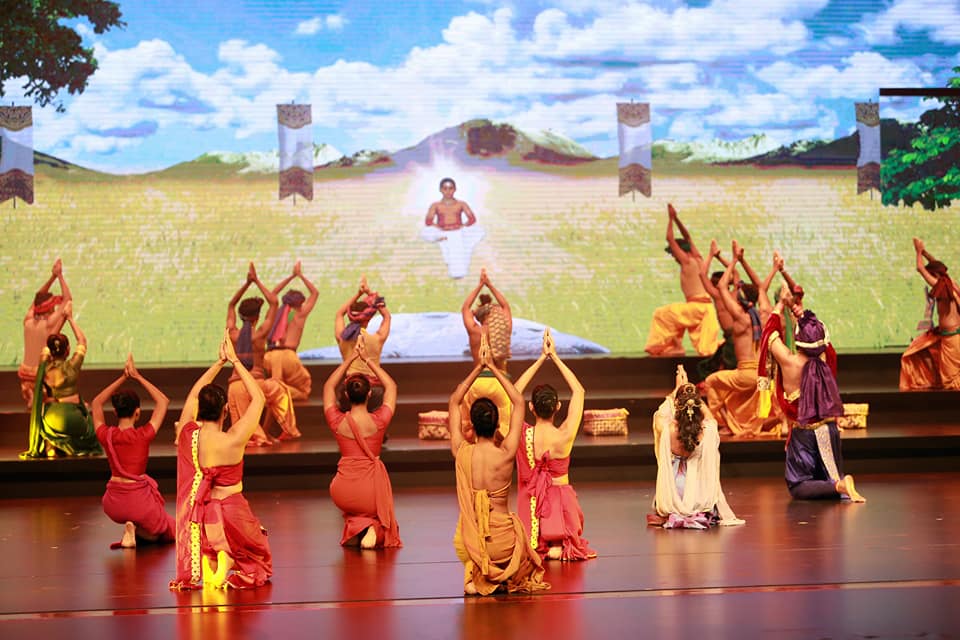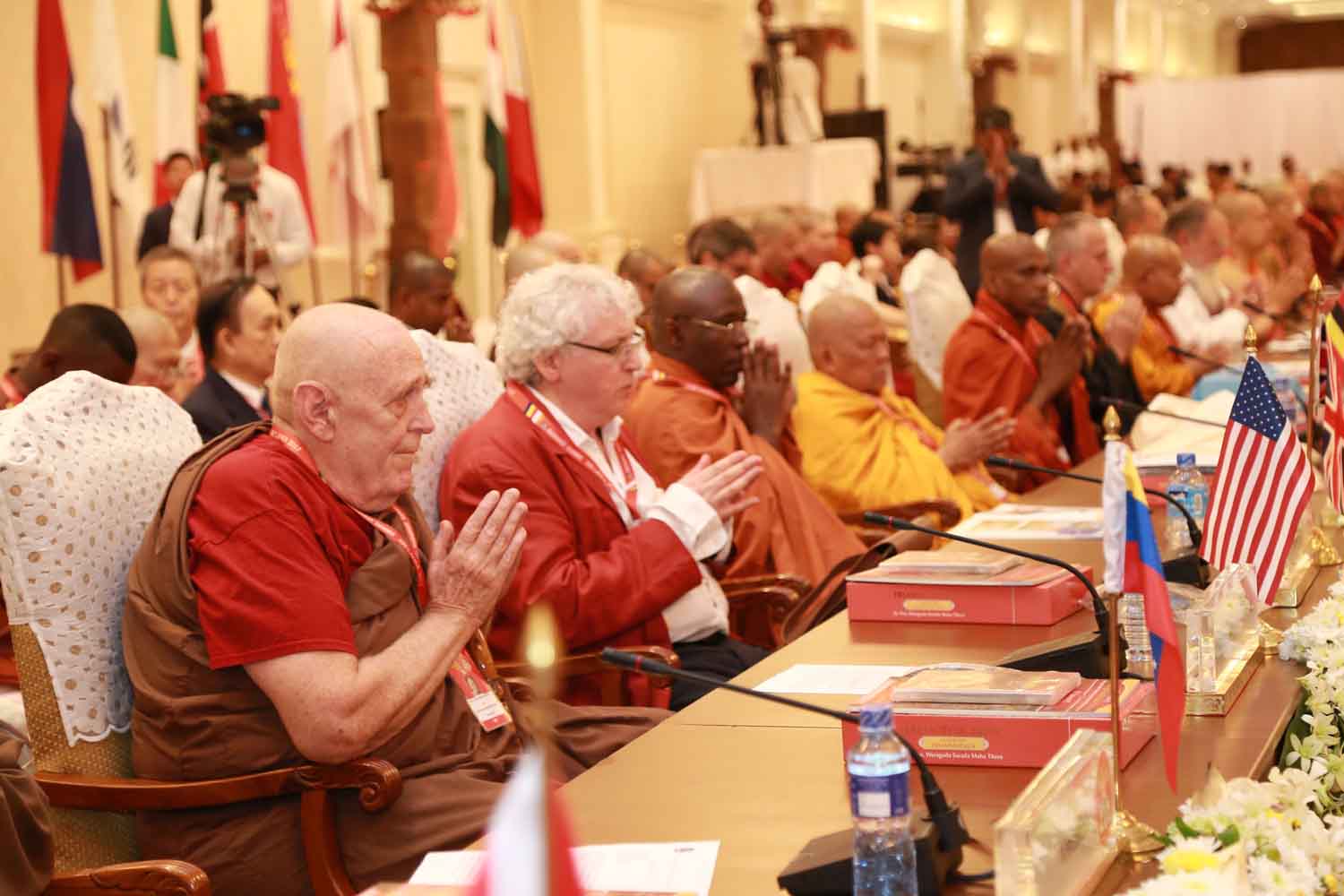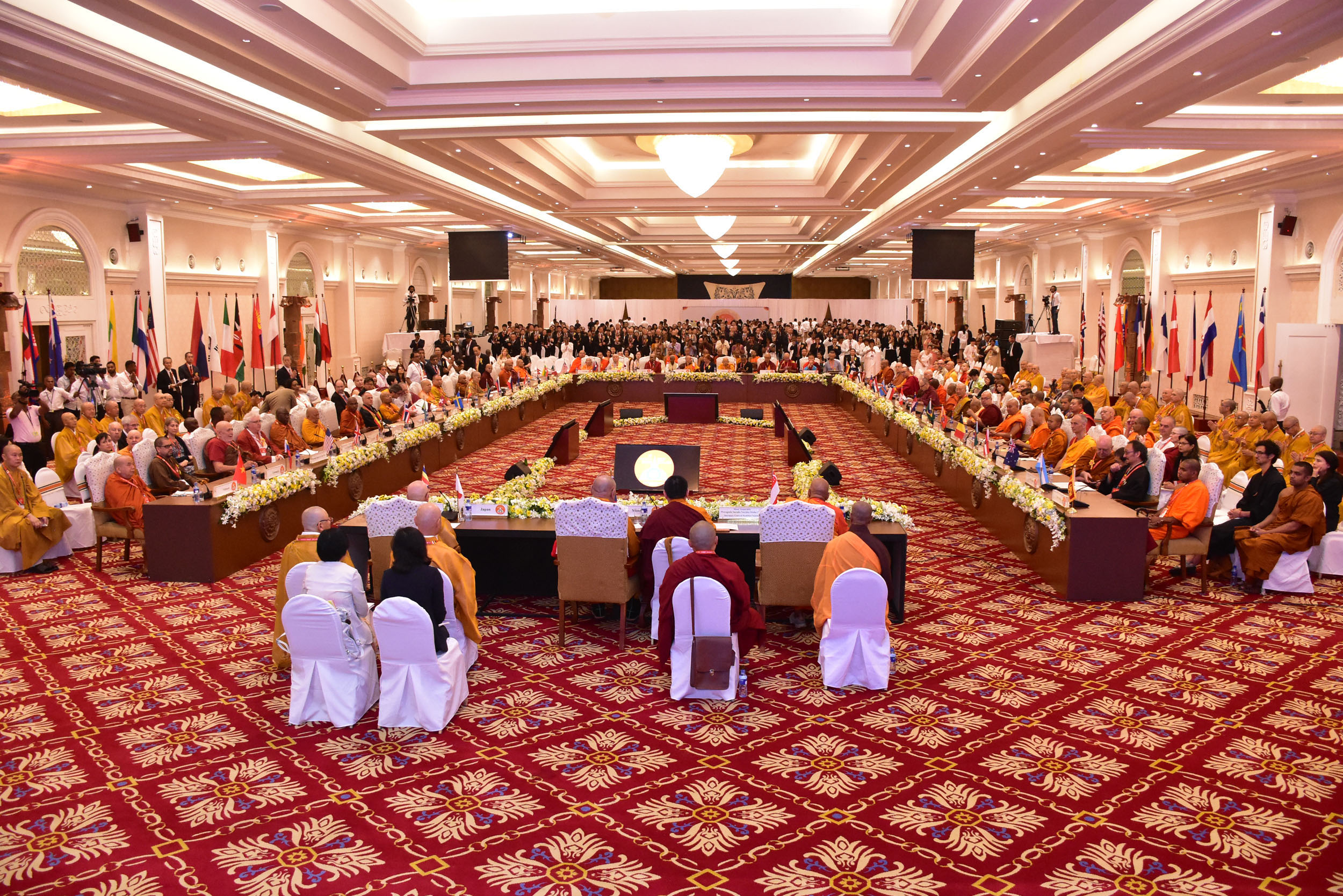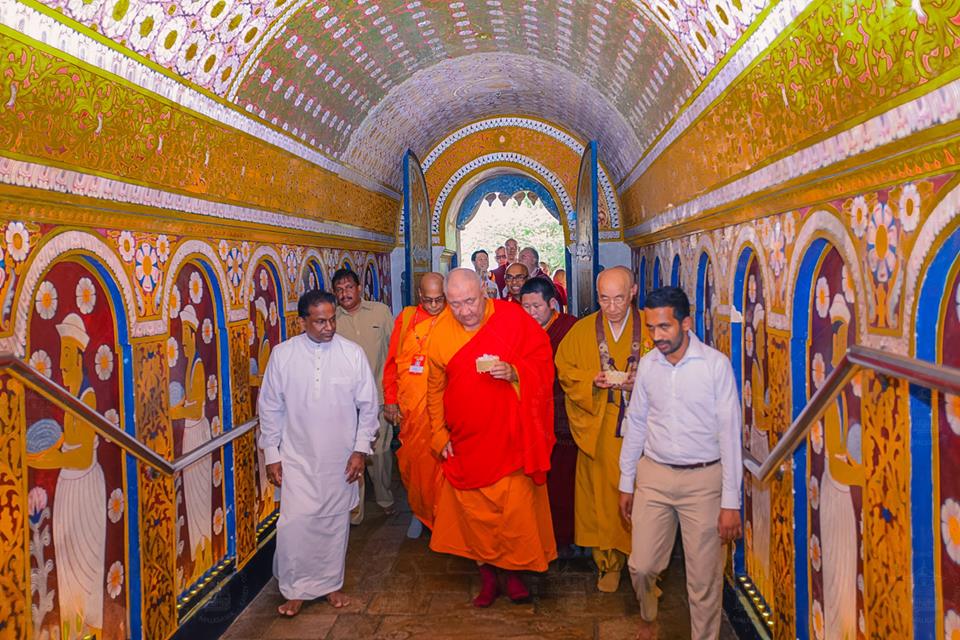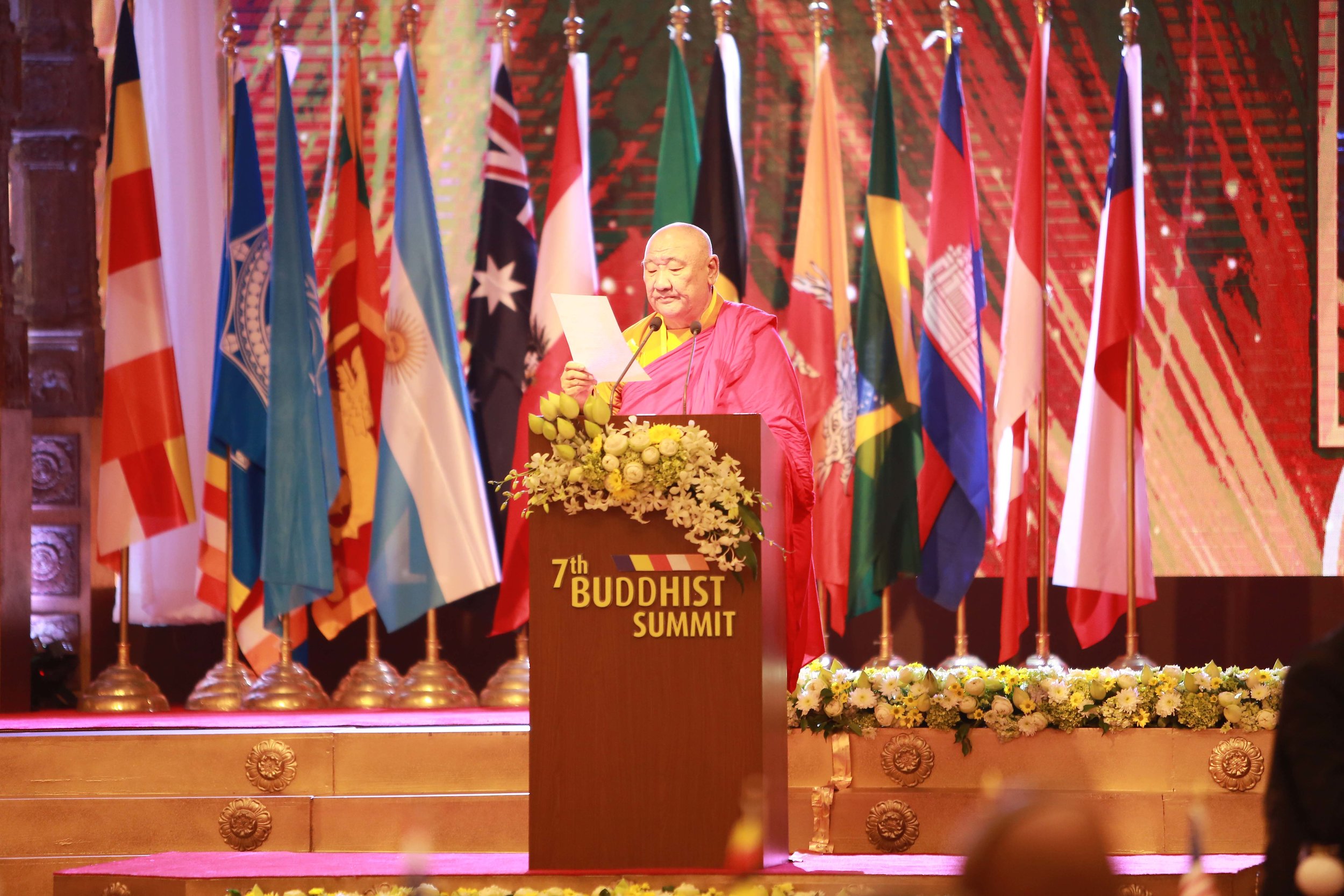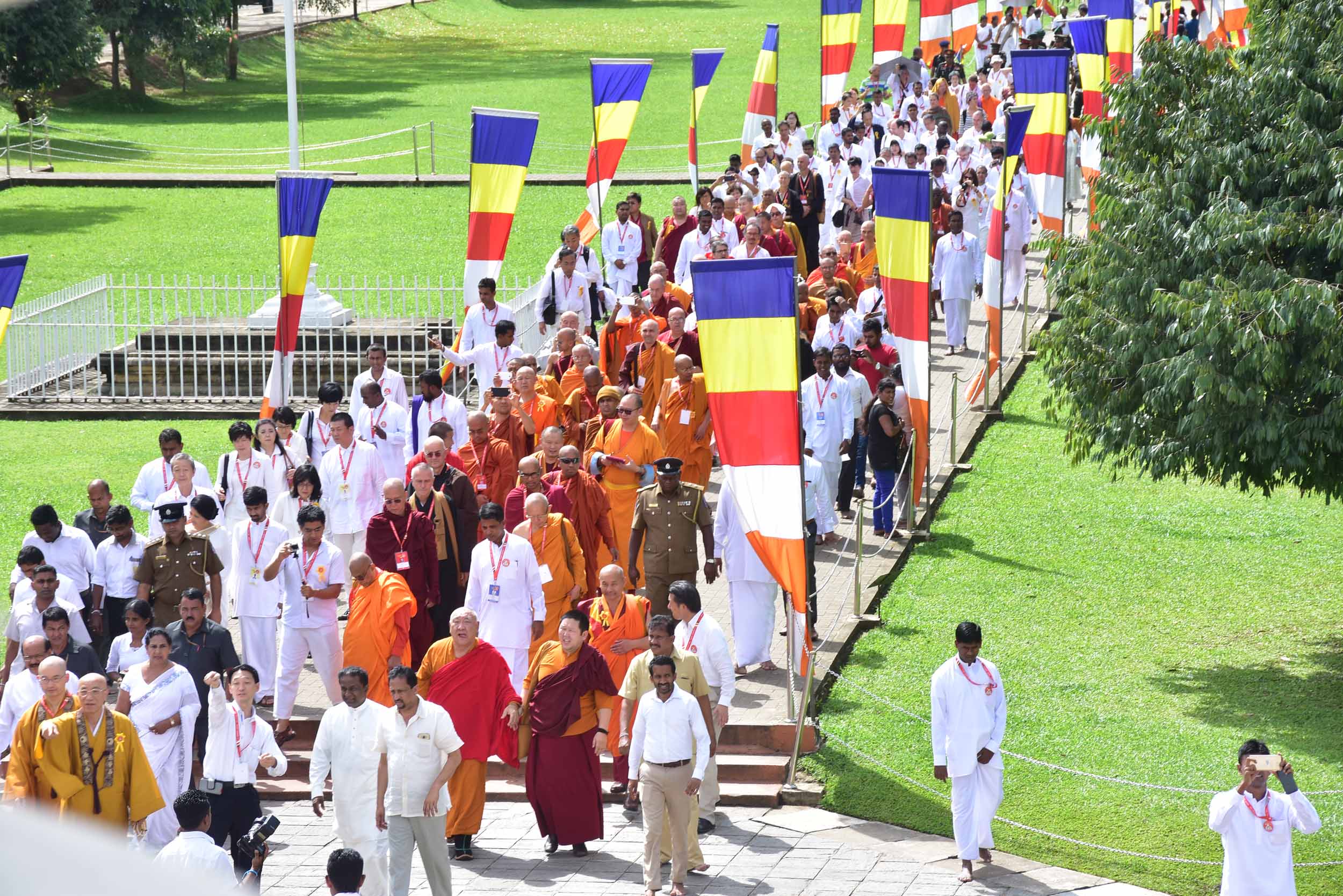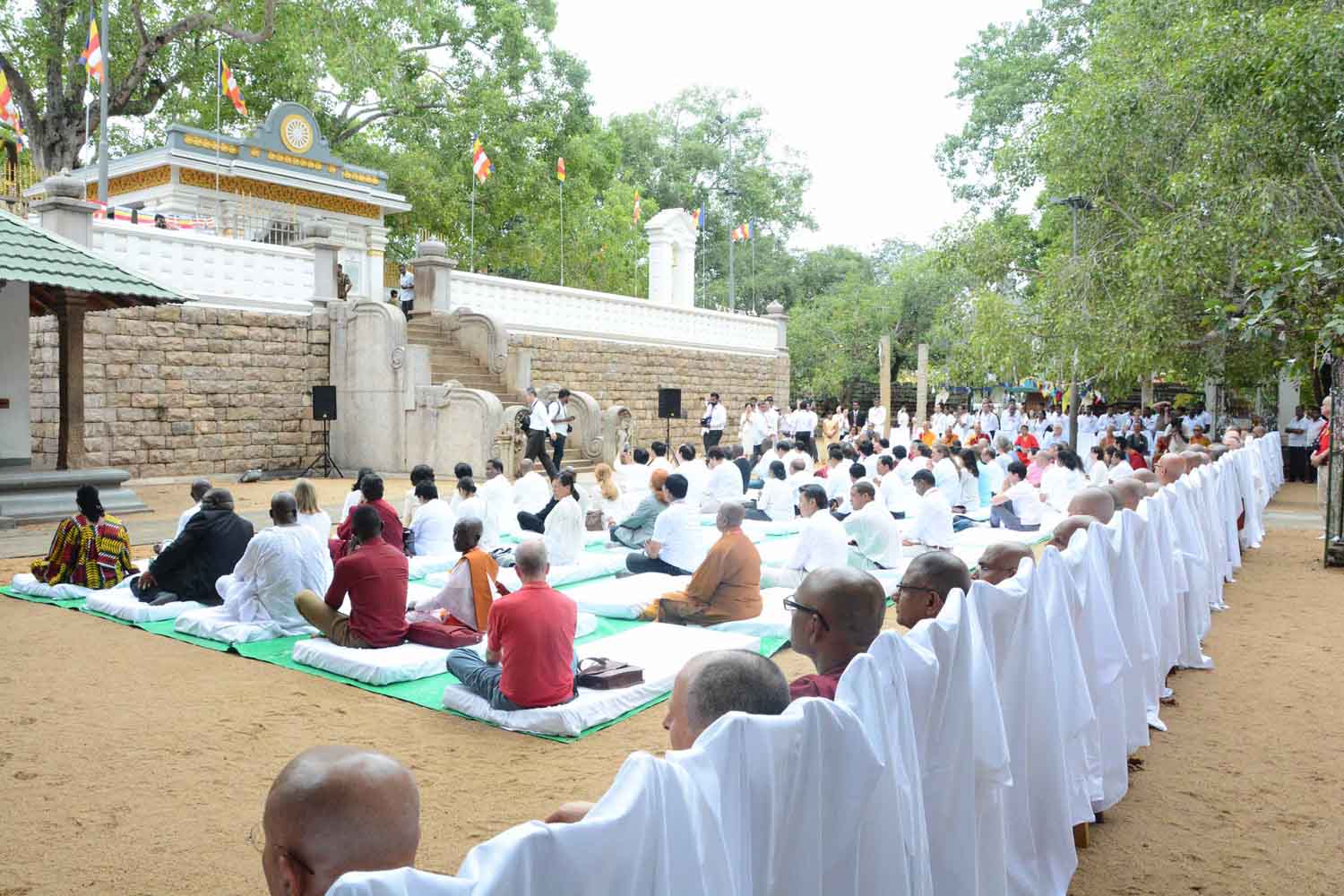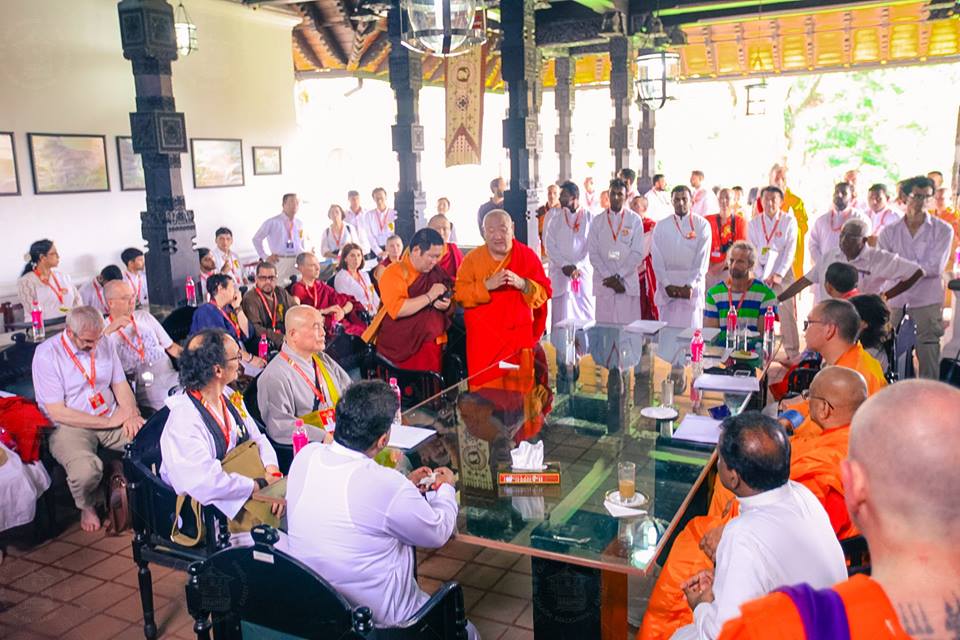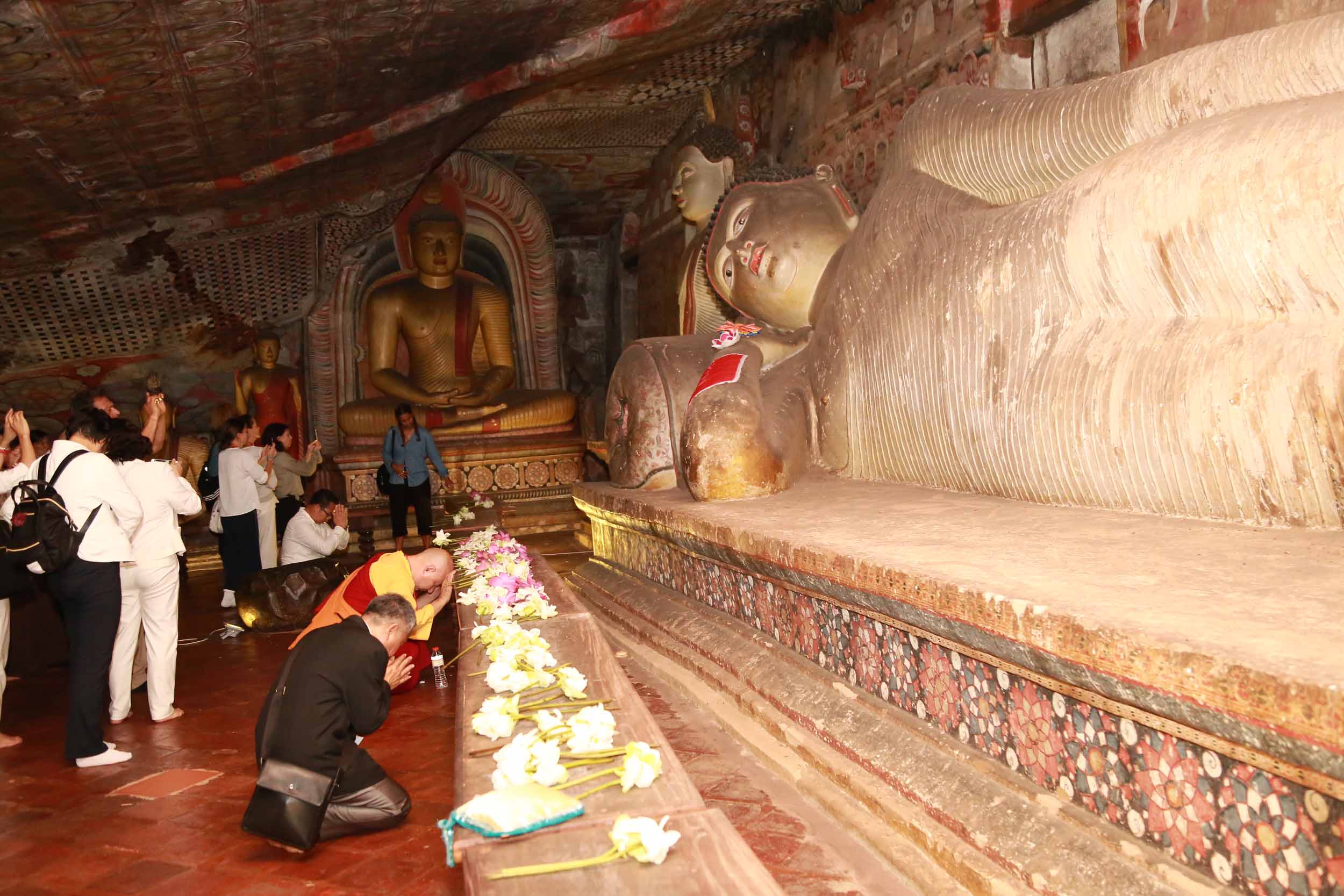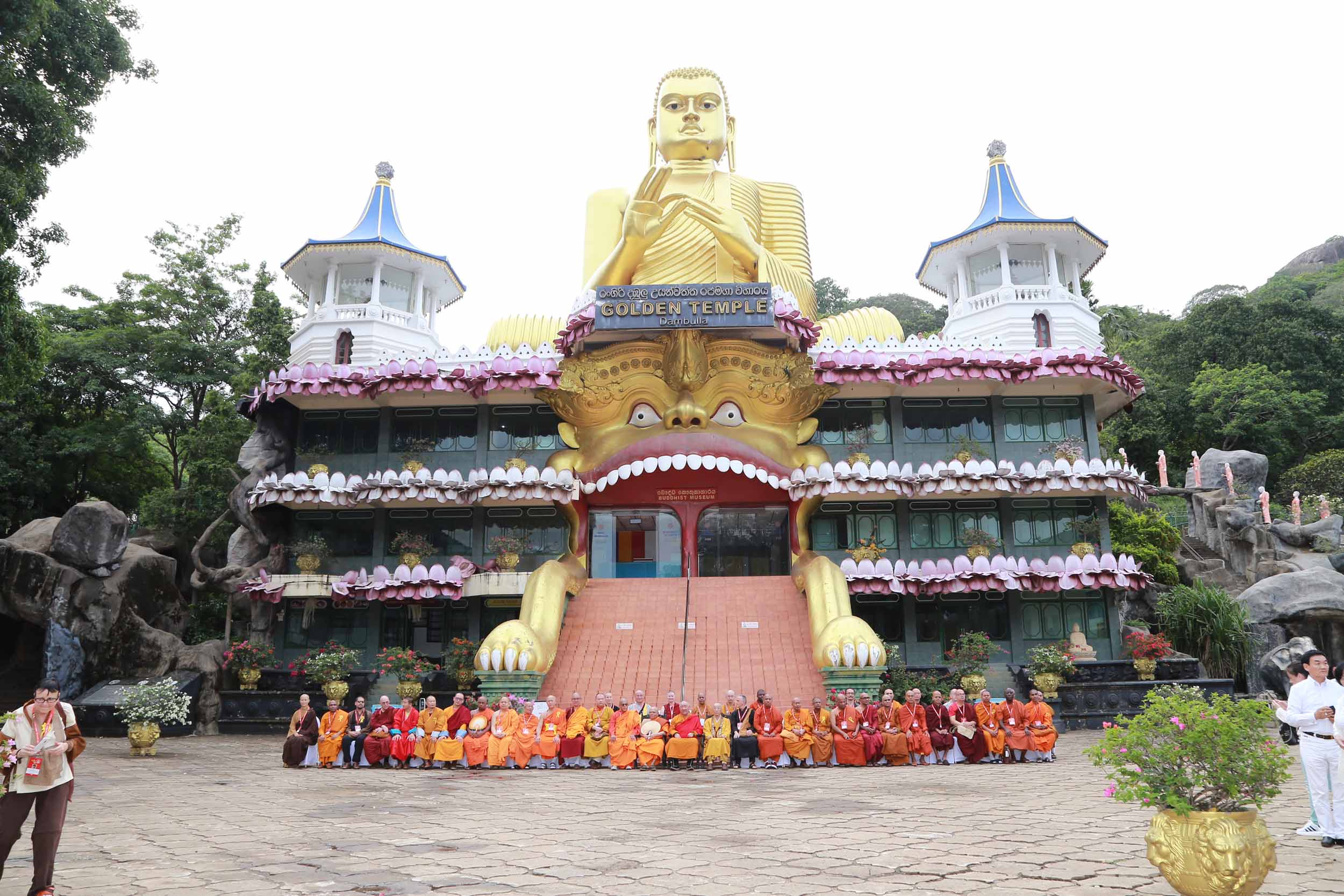The Seventh World Buddhist Summit
From 2nd - 7th November Lama Jampa Thaye was once again invited to take part in the World Buddhist Summit as representative for Buddhism in the UK. This year the event was held in Sri Lanka and amongst the prayers, meetings and discussions included some beautiful and interesting cultural events and visits.
During the summit delegates had the opportunity to share news about the current practice and proliferation of Buddhism in their respective countries. Below is the text of Lama Jampa's speech.
Lama Jampa Thaye’s speech to the Seventh World Buddhist Summit
Most Venerables,
I am very happy to address you on the auspicious occasion of our Supreme Buddhist Summit held in a land blessed so profoundly by the teaching of Lord Buddha, a country that bears the footprint of great Arhats, Bodhisattvas, panditas and yogins.
I am pleased to report to the Summit that the Buddhadharma continues to enjoy support in the United Kingdom, as is evidenced by the new centres opened by followers of all three traditions – Theravada, Mahayana and Vajrayana. Since no Census has taken place since the last occasion of our last Summit in 2014, it is impossible to be precise about numbers but all indications are of growth.
We are a medium sized organisation and as regards activities in our network of centres and groups, as an indication the highlight of this year was the visit of His Holiness Ratna Vajra Rinpoche, the new Throne Holder of the Sakya tradition. His Holiness visited and taught at our centres in London and Bristol and many were able to receive his instructions and blessings.
My own teaching activities – giving instructions on various topics of Mahayana and Vajrayana – continued throughout the year. In our centres and groups senior instructors conducted programmes on dharma education and meditation for local members and also for newcomers to Buddhism. Some classes and dharma activities for children also proved popular.
Our publishing house, Ganesha Press, brought out two new books in the last year as well as continuing its series of translations of Tibetan texts. Dharma work also continued in our centres outside of the UK, such as France, Germany, the USA and Mexico.
The International Buddha’s Day on April 8th was enthusiastically celebrated once again in our centre in Manchester. No doubt it will continue to be seen as a vital way of bringing Buddhists from all traditions throughout the world together in the veneration of Lord Buddha. It is pleasing to see, in this way, the fulfilment of the heart-wishes of the Most Venerable Dr Kyuse Enshinjoh and all the supreme leaders of the Buddhist Summit that such a ceremony should be instituted.
In general, therefore, I think that we can say that the Buddhadharma is surviving to some extent. At a time when there is considerable hostility towards religion in certain quarters, the Buddha’s teaching still enjoys a good reputation. However, for this happy state of affairs to endure, one might suggest that it is important that we present the practice of the dharma with an equal stress on each of the three trainings – ethics, meditation and wisdom. As the great Acharya Nagarjuna has said:
‘One must continually train
In the highest ethics, wisdom and meditation.
More that one hundred and fifty trainings
Are truly included in these three.’
Unfortunately, some have decided to separate meditation from the other two trainings and teach systems of ‘mindfulness’ entirely disconnected from the dharma. However, although this may bring such people popularity in the short term, it is certain that it will not provide a path to true well-being in this world, let alone the transcendental state of Buddhahood, in which the qualities of wisdom and compassion come to fruition. So, for this to be evident, it is necessary to present the tradition in a way that brings out the intelligence of this fundamental truth of the dharma.
Another tendency that might prove deleterious for the successful transmission of the dharma is the assumption by some Buddhists in the West that Buddhism is entirely identical with their existing political or scientific ideologies. This assumption ignores the fact that, according to Buddhism and contrary to such modern ideologies, the route to freedom lies not through the manipulation and re-ordering of the external world but through an inner reform: a transformation in our understanding, experience and actions. Indeed, nirvana alone is the true freedom from suffering, since it is the extinction of the fires of ignorance and disturbing emotions that are the very source of suffering.
Thus, to conclude, I join my prayers to those of everyone else attending this Summit, that countless Arhats and Bodhisattvas will continue to manifest to light the way of dharma for those generations to come.

